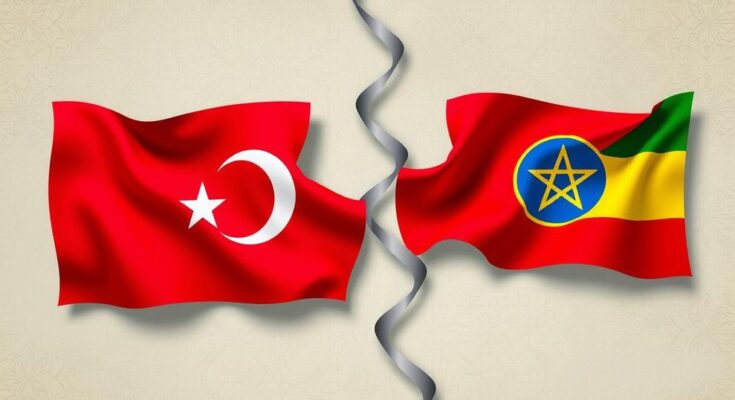A recent agreement between Somalia and Ethiopia, mediated by Turkey, resolves a maritime dispute by allowing Ethiopia access to Somali coastlines while affirming Somalia’s territorial integrity. The Ankara Declaration signifies a win-win situation for both nations, aiming for further negotiations by February 2025 to finalize the terms.
The recent negotiations between Somali President Hassan Sheikh Mohamud and Ethiopian Prime Minister Abiy Ahmed in Ankara culminated in a significant agreement aimed at resolving a longstanding maritime dispute. Turkey’s enthusiastic mediation has borne fruit after months of stalled discussions. The newly forged Ankara Declaration establishes Ethiopia’s recognition of Somalia’s territorial integrity while granting Ethiopia essential access to Somali coastlines for commercial use. This agreement’s framework encourages ongoing discussions to finalize technicalities surrounding the implementation of terms by February 2025.
The Somalia-Ethiopia negotiations stem from a broader regional context wherein both nations grapple with territorial and maritime access issues. Ethiopia, a landlocked nation, seeks to secure routes for trade through Somalia’s seaports. Somalia, on the other hand, perceives a bilateral memorandum signed between Ethiopia and the self-declared independent region of Somaliland as a threat to its territorial claims. With Turkey’s increasing involvement since 2011, including military support and infrastructural investments in Somalia, the mediation has been particularly pivotal in ensuring the interests of both parties are addressed.
The Ankara Declaration presents a diplomatic resolution to a critical impasse between Somalia and Ethiopia, highlighting the importance of international mediation. By recognizing Somalia’s territorial claims while allowing Ethiopia commercial access to its coastlines, both countries appear to benefit politically and economically. Observers note this development could potentially pave the way for enhanced regional cooperation and mitigate future conflicts, thus advancing peacekeeping efforts in a historically contentious area.
Original Source: www.middleeasteye.net




